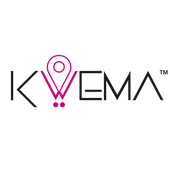As we have said in previous blogs, the COVID-19 pandemic has impacted us at different levels. The workplace is not an exception: employees’ attitudes and behaviors are changing and they have made us rethink what really matters either personally or professionally.
There’s no doubt that ensuring a safe return to work has become a top priority for companies in all industries. But what do employees expect from leaders and managers on how they will handle their safety? What is the most important thing for employees to feel safe at their workplace?
Today, we will try to answer these questions.
Employees expect companies to put their safety first
A study conducted by Ketchum consultancy found that 52% of american employees surveyed consider that safety is more important than being promoted. A different Bain and Company survey says that employees are most comfortable returning to work if they believe their company takes their safety and health seriously.
Another study done by the IPR and The Harris Poll found that 87% of the respondents agree that employers must provide clear guidelines on safety precautions before they allow employees to get back to the workplace. In addition, almost 75% of employees surveyed expect workplaces to provide them certain commodities and protections when they return to work such as hand sanitizer, physical barriers or reconfigured work areas in order to maintain social distancing, temperature checks, PPE like masks and respirators, among others.
Employees expect more flexibility and having voice to decide
Although businesses are putting in place all measures to re-open workplaces gradually, it’s highly expected that employees demand flexibility and consideration according to their personal circumstances and how they are perceiving employers' efforts for a safe workplace.
For instance, more IPR’s insights revealed that most of the employees surveyed think they should be allowed to continue working from home until they feel comfortable to return (81%). Moreover, most of the employees agree that if work activities can be performed remotely then employers shouldn’t require them to return to the workplace until COVID-19 is no longer a threat (83%).
Employees expect extended benefits and protection
The same IPR’s study found that nearly three-quarters of the workers surveyed said they expect to receive certain benefits from their employers if they contract COVID-19 at their workplace. These compensations mainly include paid sick leave, payment for covid testing and coverage for hospital and medical expenses. Also, the study shows that employees are more likely to support legal protection against unfair COVID-19 litigation if companies demonstrate accountability for employee safety.
As we discussed in a previous blog, as more and more employees are going back to the workplaces and the coronavirus disease still spreads across the country, we believe that other states will continue to analyze what kind of adjustments are necessary to extend worker protection. As a consequence, it will be necessary for companies to be prepared to face potential claims for COVID-19 exposure risks at the work.
More than ever, we believe that every workplace must prorize policies that guarantee a safe work environment for employees. Kwema helps companies prevent potential COVID-19 outbreaks at workplaces with Contact Tracing functionality. If someone is diagnosed positive for COVID-19, our technology allows you to trace where the employee was, identify who they may have come into contact with and classify all employees into 3 groups of risk and take proactive action to prevent spread.
Watch how Kwema is disrupting workplace safety
Photo by Christina Morillo on Pexels
employee expectations after covid
What are employees basic expectations of the workplace?
What are the expectations of an employee?
employee return to work expectations
